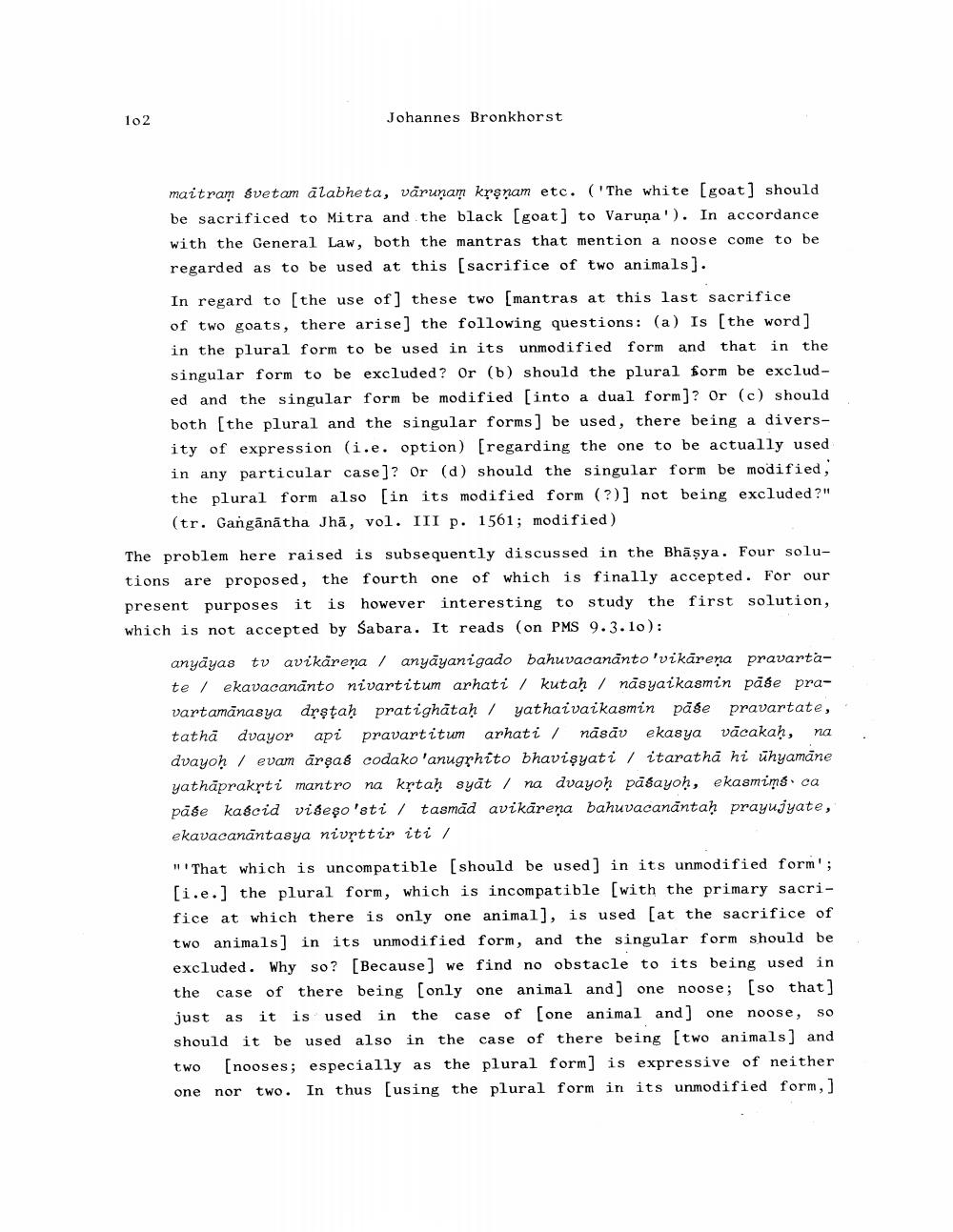Book Title: Studies On Bhartrhari Author(s): Johannes Bronkhorst Publisher: Johannes Bronkhorst View full book textPage 2
________________ 102 Johannes Bronkhorst maitram svetam alabheta, vāruņam krsnam etc. ('The white [goat] should be sacrificed to Mitra and the black (goat] to Varuņa'). In accordance with the General Law, both the mantras that mention a noose come to be regarded as to be used at this sacrifice of two animals]. In regard to [the use of] these two (mantras at this last sacrifice of two goats, there arise] the following questions: (a) Is (the word] in the plural form to be used in its unmodified form and that in the singular form to be excluded? Or (b) should the plural form be excluded and the singular form be modified [into a dual form]? Or (c) should both (the plural and the singular forms] be used, there being a diversity of expression (i.e. option) [regarding the one to be actually used in any particular case]? Or (d) should the singular form be modified, the plural form also [in its modified form (?)] not being excluded ?" (tr. Gangānātha Jhā, vol. III p. 1561; modified) The problem here raised is subsequently discussed in the Bhäşya. Four solutions are proposed, the fourth one of which is finally accepted. For our present purposes it is however interesting to study the first solution, which is not accepted by Sabara. It reads (on PMS 9.3.10): anyāyas tv avikāreņa / anyāyanigado bahuvacananto'vikārena pravartate / ekavacanānto nivartitum arhati / kutaḥ / nāsyaikasmin påse pravartamānasya dretaḥ pratighātaḥ / yathaivaikasmin pase pravartate, tathā dvayorapi pravartitum arhati / nāsāv ekasya vācakah, na dvayoḥ / evam ārşać codako 'anugrhito bhavişyati / itarathā hi ühyamane yathāprakrti mantro na krtah syāt / na dvayoḥ pāśayoh, ekasmims.ca pase kaścid viseşo 'sti / tasmad avikāreņa bahuvacanantah prayujyate, ekavacanāntasya nivrttir iti / That which is uncompatible [should be used) in its unmodified form'; [i.e.] the plural form, which is incompatible with the primary sacrifice at which there is only one animal], is used [at the sacrifice of two animals] in its unmodified form, and the singular form should be excluded. Why so? Because we find no obstacle to its being used in the case of there being [only one animal and] one noose; (so that ] just as it is used in the case of [one animal and) one noose, so should it be used also in the case of there being [two animals) and two (nooses; especially as the plural form] is expressive of neither one nor two. In thus (using the plural form in its unmodified form, ]Page Navigation
1 2 3 4 5 6 7 8 9 10 11 12 13 14 15 16 17
